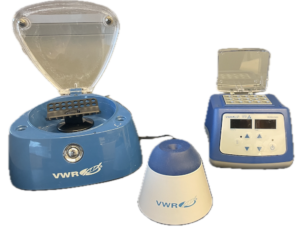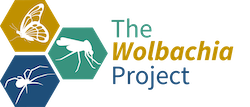Microbial Discovery Resource Program
The Microbial Discovery Resource Program (MDRP) supports the accessibility of equipment, reagents, and sequencing services to educational partners of Discover the Microbes Within: The Wolbachia Project.
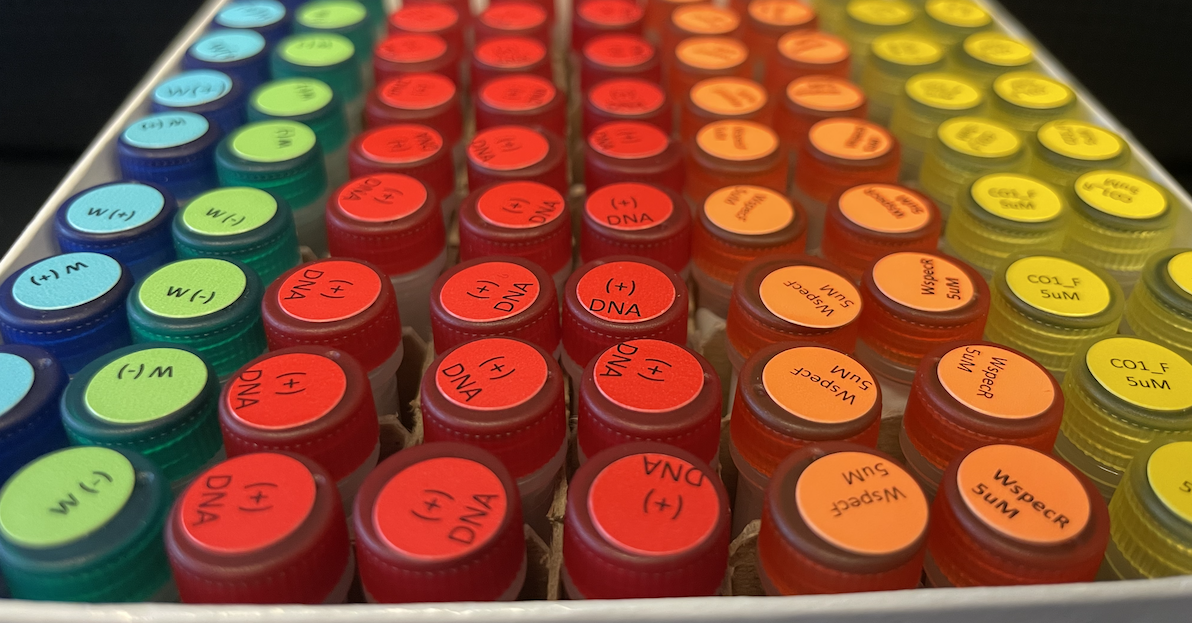
Contact us to obtain insect controls (Wolbachia-infected and Wolbachia-uninfected), a Wolbachia (+) DNA control, and PCR primers. Please allow at least 2 weeks for delivery.
LCO 1490 (CO1F) and HCO2198 (CO1R) are universal insect barcoding PCR primers to amplify the cytochrome c oxidase subunit I (CO1) gene of arthropods.
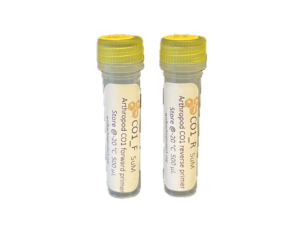
WSpecF and WSpecR are Wolbachia-specific PCR primers to amplify the 16S rRNA gene.
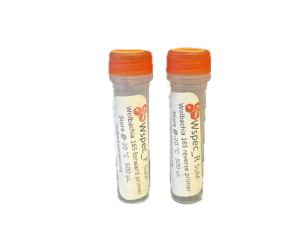
Wolbachia-infected (w+) and Wolbachia-uninfected (w–) Drosophila melangaster fruit flies serve as experimental controls for DNA extraction and PCR.
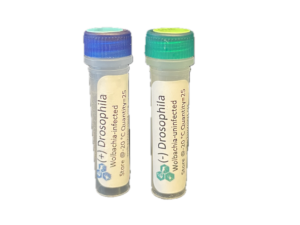
Genomic DNA (+ DNA) from Wolbachia-infected insects serves as an experimental control for PCR.
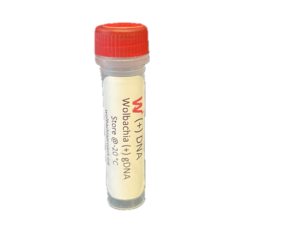
Request for Proposals: QIAGEN DNeasy Blood & Tissue Kits
(Download PDF)
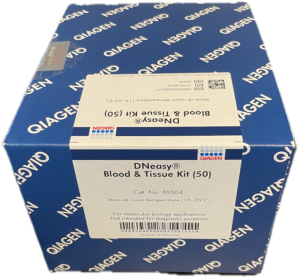
Discover the Microbes Within! and the One Health Microbiome Center at Penn State invite proposals to the Microbial Discovery Resource Program (MDRP) for new and existing participants of the Wolbachia Project. Thanks to the generous support of QIAGEN, a limited number of DNeasy Blood & Tissue Kits (#69504, 50 extractions) will be available to biology, microbiology, and biotechnology classrooms at no cost.
The Wolbachia Project is an inquiry-based research experience for high school and postsecondary students. The integrative, 5-part lab series empowers young scientists to explore arthropod biodiversity within their communities, apply hands-on techniques in molecular biology and bioinformatics to extract and analyze DNA sequences, and communicate new scientific data on the bacterial endosymbiont Wolbachia via an international database. The MDRP supports the accessibility of equipment, reagents, and sequencing services to participating schools.
Eligibility
All new and existing participants of the Wolbachia Project are encouraged to apply. Applicants must meet the following criteria:
- Recipients must plan to use the QIAGEN DNeasy Kit for “Lab 2: DNA Extraction” of the Wolbachia
- Recipients must be affiliated with a high school and/or postsecondary organization, including 2-year and 4-year institutions.
- If the QIAGEN DNeasy Kit will be used for a student independent project, the proposal must be submitted by the supervising teacher and/or administrator.
- Due to shipping expenses and restrictions on international shipping, recipients must be located within the US.
Proposal Requirements
Proposals should be submitted online via the MDRP Proposal Submission Portal.
Each proposal should include:
- Supervising teacher(s) and/or administrator(s).
- Name and address of the organization.
- Educational level of participants.
- Anticipated number of participants.
- Anticipated date that the DNeasy Kit(s) will be required.
- Summary (1-page maximum): A summary of the course, independent research project, and/or after-school program. Existing Wolbachia Project participants may include a testimonial of previous experiences.
- Acknowledgement that a ½ page testimonial is required upon completion of The Wolbachia
- Acknowledgement that ethanol is required for the QIAGEN DNeasy kit and will be provided by the recipient.
- Statement of Diversity (optional, 100-word maximum): The MDRP supports the training of “Underrepresented Populations in the U.S. Biomedical, Clinical, Behavioral and Social Sciences Research Enterprise.” Applicants are encouraged to describe how the Wolbachia Project will benefit you and/or student participants and encourage diversity in scientific education and research.
Submission and Review Process
Proposals may be submitted on a rolling basis between January 24 – December 31, 2024, via the MDRP Proposal Submission Portal.
Proposals will be evaluated by the Director and Program Coordinator of The Wolbachia Project. Applicants will be notified within 2-weeks of their submission and Qiagen DNeasy Kits will be sent within one month of the initial application. Priority will be given to high schools.
Awardee Expectations
All awardees will submit a ½ page testimonial following completion of The Wolbachia Project. Testimonials should include the number and grade level of students participating in The Wolbachia Project, teacher and/or student perceptions of the experience, and any feedback for improving and/or building upon the project. Gel images and graphical summaries of data may be included.
Participants are encouraged to make Wolbachia Project data publicly accessible via online submission to The Wolbachia Project Database, publication in peer-reviewed journals (such as the Journal of Emerging Investigators), and/or submission of DNA sequences to NCBI-GenBank. Please include references to these publications in the ½ page testimonial.
We currently provide Sanger sequencing to Wolbachia Project educational partners. We highly encourage all participants to make DNA sequences publicly available via The Wolbachia Project Database.
Requirements
- Each PCR product must have a single, bright band on the agarose gel (Lab 4). Faint and/or multiple bands will not yield quality results.
- Each sequencing reaction requires at least 10 ul of PCR product. A PCR clean-up step is not required.
Sample Submission Guidelines
- Contact Us to coordinate shipment.
- Submit at least 10 ul of PCR product for each sequencing reaction.
- Properly package the samples. Ensure that each tube is tightly sealed. Because labels sometimes rub off during shipment, it is generally recommended to place the tubes within a petri dish (see image below) or loosely tape tubes to a notecard and place in a plastic bag. Label each tube as well as the dish/notecard. Including an ice pack is recommended if handy, but not required.
- Include a spreadsheet that lists the following for each sample:
- Tube number
- Source of DNA (general ID of the arthropod – fly, spider, etc)
- Wolbachia or Arthropod DNA?
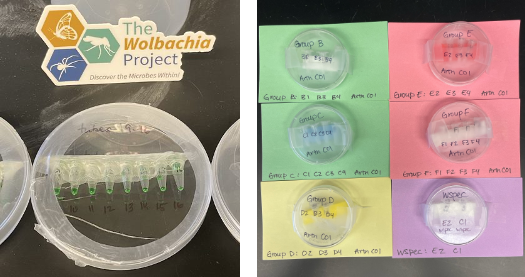
Thanks to support from MiniOne and the VWR Foundation, the Microbial Discovery Resource Program provides free loaner equipment to local educational partners. Please note that participants must coordinate pick-up and drop-off from Penn State University. The equipment is also used for teacher professional development workshops. Contact us for more information.
The MiniOne PCR and Electrophoresis Systems enable classrooms to participate in hands-on, molecular biology research experiences. The MiniOne Electrophoresis System utilizes a built-in transilluminator for real-time visualization of DNA migration during agarose gel electrophoresis.
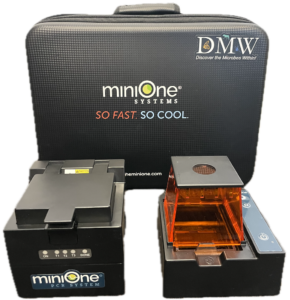
Classroom-sized centrifuges, vortex mixers, and dry baths facilitate the manipulation of small samples in the research laboratory.
